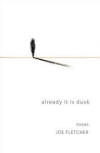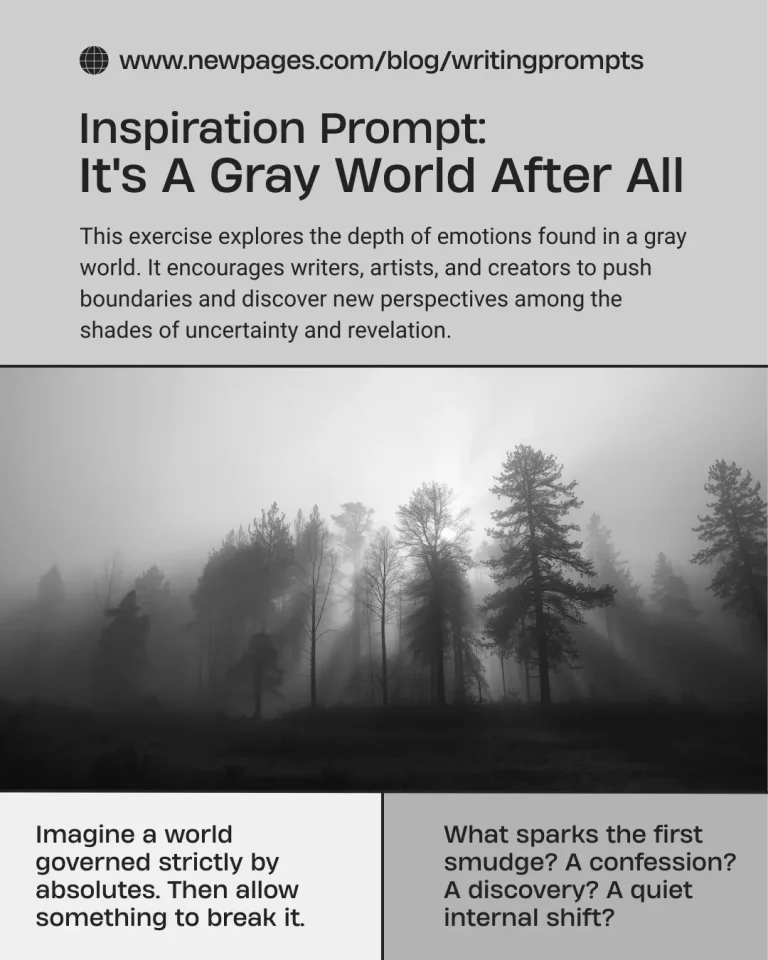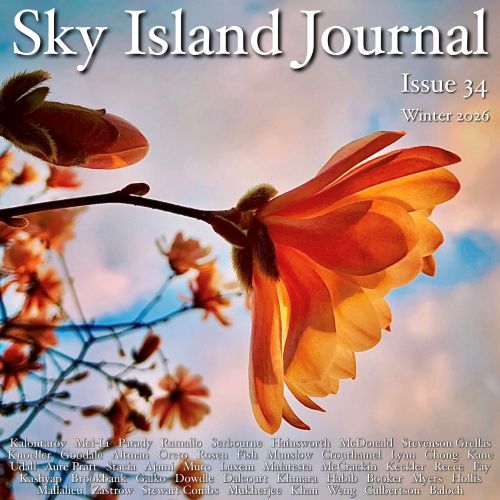Brooklyn Arts Press has entered the business of publishing chapbooks with a collection about endings. Joe Fletcher, whose previous publications include the chapbook Sleigh Ride (Factory Hollow Press), evokes in Already It Is Dusk a world drunk on its own decay, whose fields are “abandoned by sowers” and whose “soldiers stare blankly at the smoldering embassy.” While not as bleak as, say, Blake Butler’s Scorch Atlas, this world is peopled with monsters such as “Ben Nez the Winged,” who threatens to suck the breath from that poem’s narrator, so that he “drag[s his] boots to smear [his] tracks.” More often than not, the monster is within, such as in “Hunting” when the hunter must “Pry the chickens’ chests open / with my beak” after they “walk right up into my outstretched arms.”
Brooklyn Arts Press has entered the business of publishing chapbooks with a collection about endings. Joe Fletcher, whose previous publications include the chapbook Sleigh Ride (Factory Hollow Press), evokes in Already It Is Dusk a world drunk on its own decay, whose fields are “abandoned by sowers” and whose “soldiers stare blankly at the smoldering embassy.” While not as bleak as, say, Blake Butler’s Scorch Atlas, this world is peopled with monsters such as “Ben Nez the Winged,” who threatens to suck the breath from that poem’s narrator, so that he “drag[s his] boots to smear [his] tracks.” More often than not, the monster is within, such as in “Hunting” when the hunter must “Pry the chickens’ chests open / with my beak” after they “walk right up into my outstretched arms.”
Like the children in “Islanders, “Fletcher builds with the materials offered to him:
The children like the bones
and make small forts with them
in the sand. A boy whistles to me
through a massive ribcage.
The pieces are small: characters may find moving from Dallas to Lubbock the most they can muster, but that move is a revelation. Similarly, Fletcher constructs worlds from short lines. “Solstice Sequence” in particular is relentlessly end-stopped, a poem circling itself like wherein
The glinting midway smells of fried sugar.
A pear thuds on a corrugated shed roof.
A theatre troupe performs to a half-circle
of bored citizens.
In “I am Young,” punctuation sticks words in the reader’s throat like a teenager’s attempts at conversation: “Night. Along the road crushed / leaves exhale. June. Fog muffles.” And again, later in the same poem: “It’s late. No cars. Wet streets.”
However, endings are never final. Try as the narrator might to prevent his own death throughout the collection, and to prevent birds from devouring the attractive corpses covering “The Dead Sea,” he eventually lays down among them, finding their company preferable to the passing convoy. In fact, in poems like “Our Passage” and “The Shaft,” the collection’s two prose poems, strange, dream-like journeys end with hints of waking-hour shifts that are the beginning of life in a new form:
The train’s whistle-blast followed me up the
shaft and echoed through the conduits. Then all was dark and silent
except my own slithering and panting. I returned as dawn touched
grayly the walls of my room. Someone had extinguished my lamp.
Throughout the collection, “mushrooms sprout from rot” and “A delphinium is potted in the upturned skull of a man.” By becoming the monster, one can “bite the mouth that eats me.” Death, then, is merely the compost upon which new life begins, and movement comes from a sense of receptivity that’s presented in the collection’s opening poem, “Antenna”:
Listen. Watch for what comes out
of cracks in the tundra, out of
the sink in the demolished villa, out of
you, who want so badly for things
to be stirred
Poetry and storytelling here function as a way of receiving, a contrast to when “swords clatter deep / in museums,” the spastic, jerking violence that threatens to “put your hand inside us, / put your hand all the way inside us / and stop the bell, the rusted bell that is ringing.”
Fletcher’s frequent rhetorical questions continue the work of the drunk, pensive characters wandering through “Returns” and “Islanders” whose “sky is gray / but we stare right through it to our god.” Through communication, one can “see the artery that runs between” people. While there seems to be an attempt to keep the folks of Dusk on the treadmill: “They leaned against / each other as if it were the last / thing to do.”
In “The Wounded Americans,” a fitting end to the chapbook, “the story drifted from mouth to mouth” as speakers share a story “that seemed to fit them all.” Fletcher’s poems mirror our darkness and fear, but the reflection shines.





